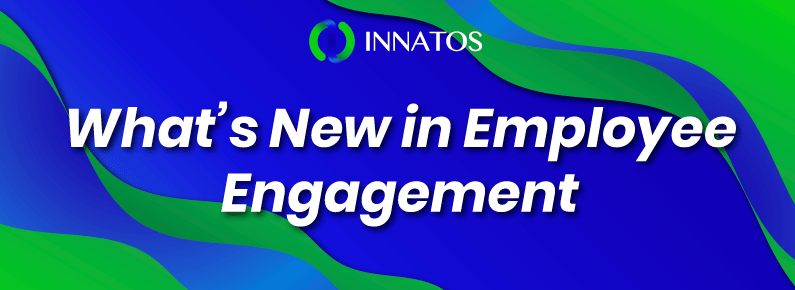7 Reasons Why IT Help Desks Fail
The IT help desk operates in a challenging environment. Help desk staff have to juggle many competing priorities and demands while also dealing with unforseen issues that could end up becoming a crisis for the company if not dealt with properly.
Help desk staff have many new challenges and trends to work around including cloud-based services, remote access, global interconnection and mobility which can increase pressure on the help desk service.
With companies so reliant on technology in order to be competitive and thrive in the modern world, if your IT help desk isn’t performing well, there can be major consequences for the entire organization.
These are some of the ways IT help desks fail.
1. By not being properly resourced
Failing to properly invest in your IT help desk means that it is never going to be able to perform the task that you need.
In fact, some organizations have either cut back on their IT help desk because it doesn’t actively generate revenue, or have outsourced this component of business in order to cut costs.
There are many issues that can arise in either situation – the commonality with both is that when employees urgently need help so they can use the systems they need to do their jobs, a poorly resourced IT help desk will take far too long to help this happen.
2. Poor ticketing systems, 7 Reasons Why IT Help Desks Fail
 If your company hasn’t invested in a proper ticketing system, it could be a disaster waiting to happen.
If your company hasn’t invested in a proper ticketing system, it could be a disaster waiting to happen.
Sometimes companies make their own ticketing systems or rely on Sharepoint or their emails to handle and keep track of incidents and requests.
These systems can become disorganized very quickly and suffer from other problems – leading to lost tickets and problems that are ignored or unsolved.
Investing in a proper ticketing system will enable your help desk staff to keep track of current issues and jobs and allocate workloads effectively.
3. Poor communication
No matter what line of work you’re in or what your functional role is within an organization, communicating well is vital in order for you to do your job well and to ensure others understand what you are doing and what you need from them.
This is especially true of the IT help desk. This area needs to communicate well with internal clients to keep them informed about the progress of their ticket/issue and also needs to communicate important information about outages and maintenance.
Keeping employees in your company informed about any planned maintenance and system upgrades or unforeseen outages an help them to plan their work schedules so they can remain as productive as possible during any down time.
Always give employees as much notice as possible for planned maintenance, and when an unscheduled outage occurs, keep people updated about estimated restoration times. A good way to do this is by using DeskAlerts to send pop-up notifications straight to everyone’s PC desktops. This format is really great for sending messages that won’t be ignored, skipped or minimized.
4. Workload not distributed evenly, 7 Reasons Why IT Help Desks Fail
Some legacy help desk software systems can’t be customized and this makes it distributing work evenly amongst help desk staff a difficult task. Customers expect their issue will be resolved quickly, and by an employee who is skilled and knowledgeable in the area they need assistance with.
Effective help desk management software should be able to be customized so that it distributes workloads evenly.
5. Help desk staff don’t understand the company’s current needs
 Whether your help desk is in-house or outsourced, it’s critical that the staff who man it understand what your company needs from a technological perspective – and how those needs can evolve and change over time.
Whether your help desk is in-house or outsourced, it’s critical that the staff who man it understand what your company needs from a technological perspective – and how those needs can evolve and change over time.
Not only should they have a good understanding of the software and hardware that your employees use, they should understand why they use it.
Important deadlines, projects, budget commitments and corporate priorities should all be issues that your help desk staff are well-versed in so they can have a good understanding of needs – especially as no two companies are identical. Software that may be critical to success in one company may be barely used in another.
6. Failure to manage expectations, 7 Reasons Why IT Help Desks Fail
The IT help desk can often get a bad reputation for being…unhelpful. There are many reasons for this, but sometimes it can be as simple as the department having failed to manage expectations of it held by other people.
Many help desks choose to just “wing it” and handle whatever comes in and turn the issues around over a long period of time.
Introducing a service level agreement (SLA) with the organization will help to keep your help desk staff accountable and sets expectations with the wider organization about what your help desk will deliver, agreed time frames and a framework of what they can expect when requesting assistance.
7. Failure to solve big problems
Sometimes the help desk will find itself constantly fixing issues and glitches affecting a particular software system or specific hardware. It can seem like no sooner is one of these issues resolved, another one comes along and takes its place. This can be a Band Aid solution – and the help desk staff are only treating symptoms of a wider problem instead of trying to find a cure for the disease.
The help desk should have methods and processes in place to identify and address situations that have become problematic and to step up and solve big issues when they occur.









Leave a Reply
Want to join the discussion?Feel free to contribute!